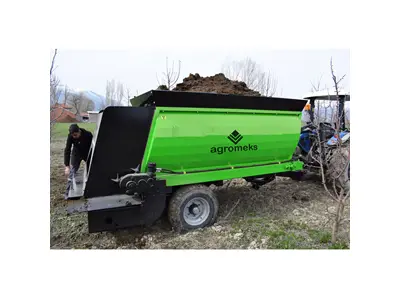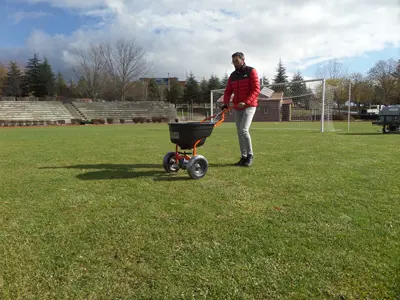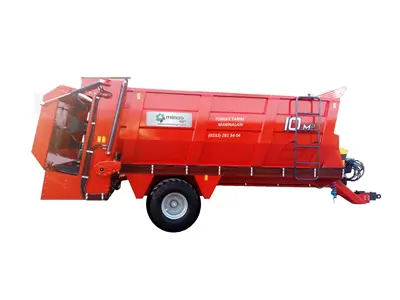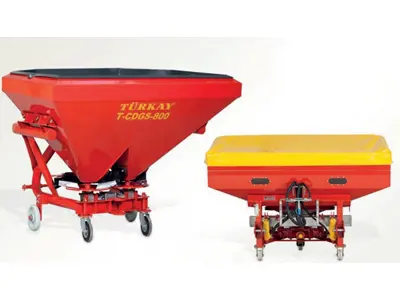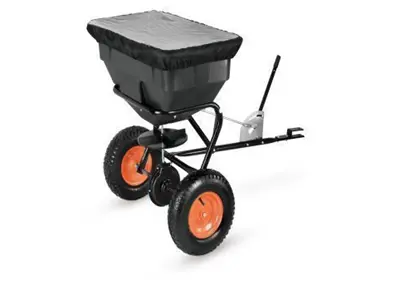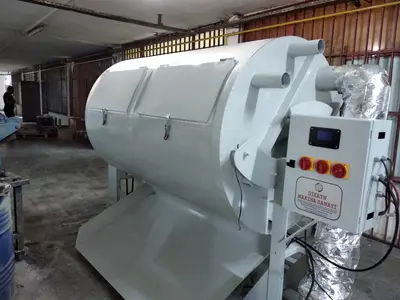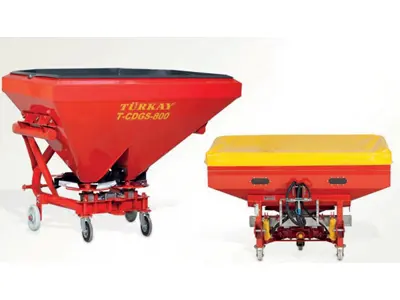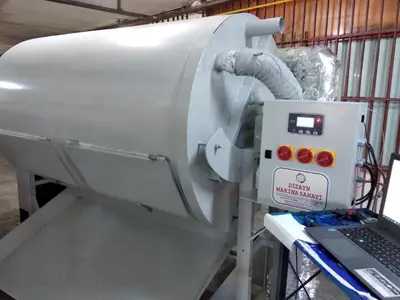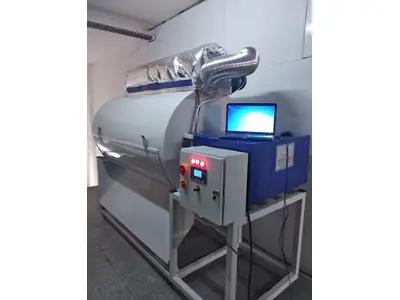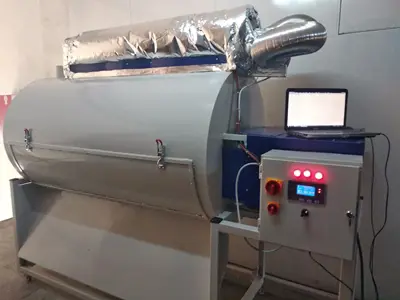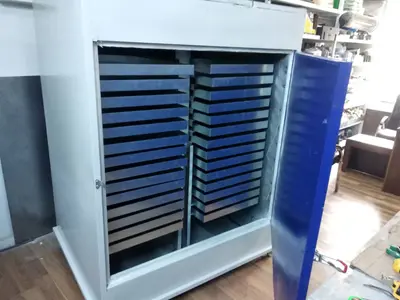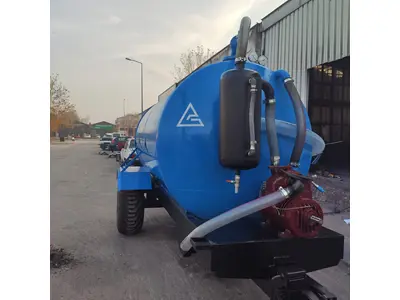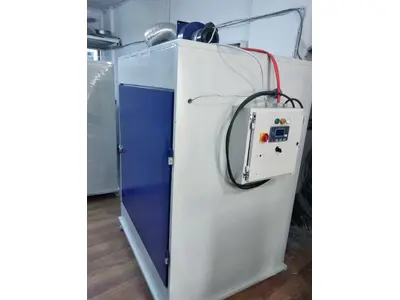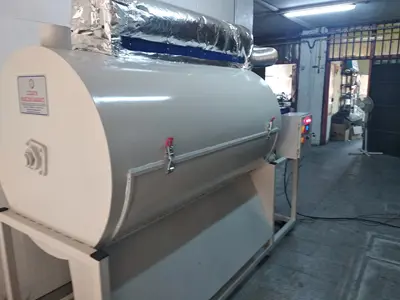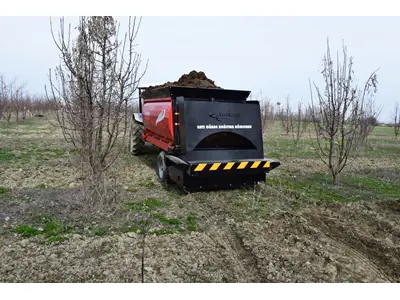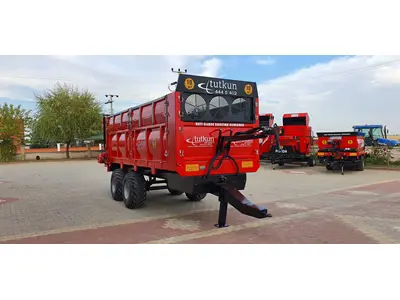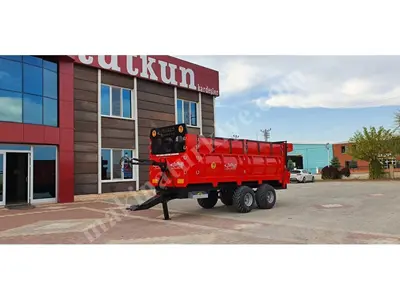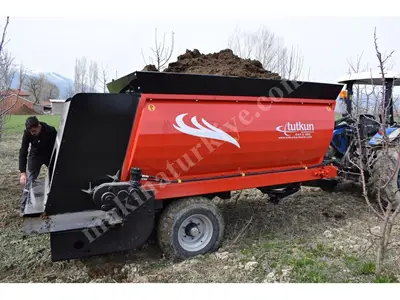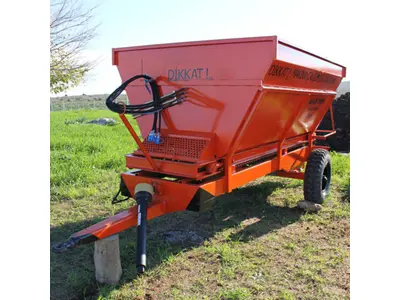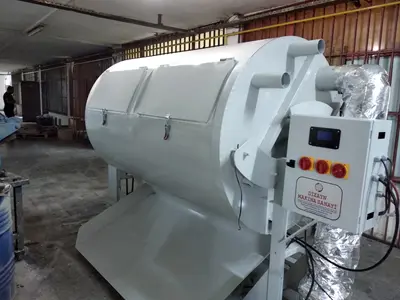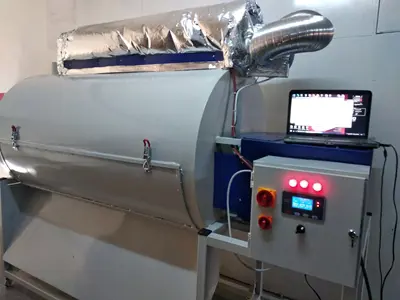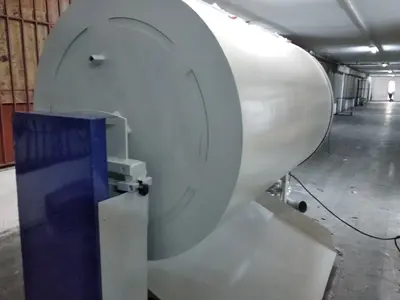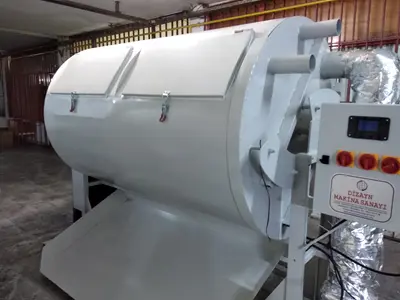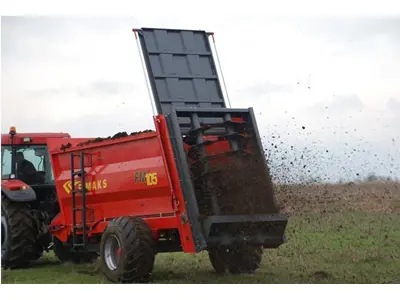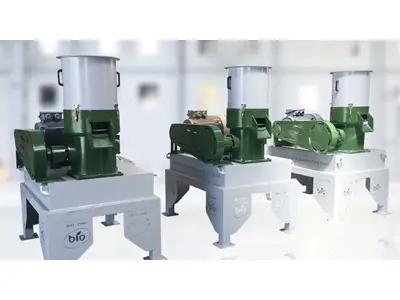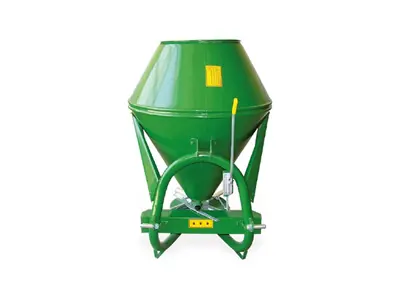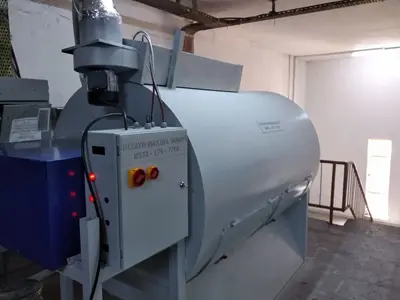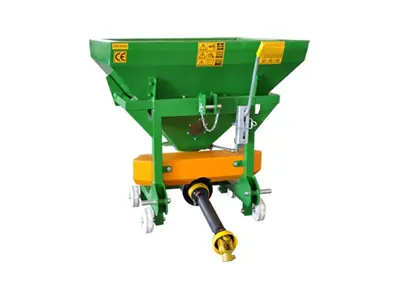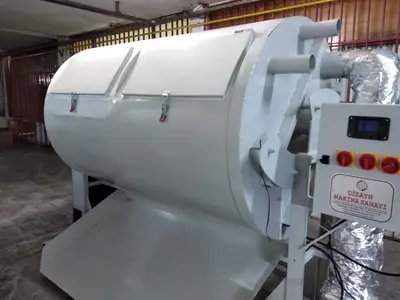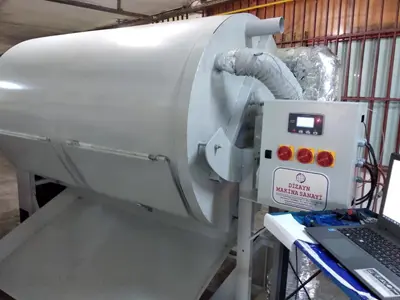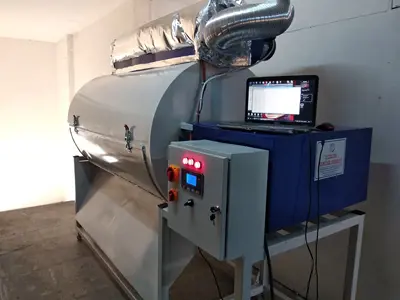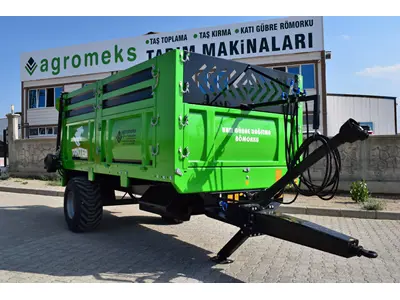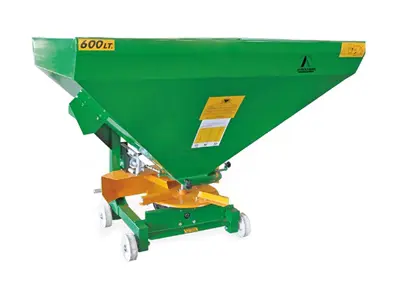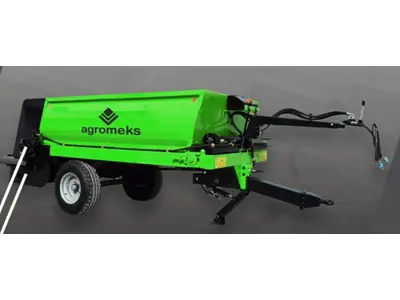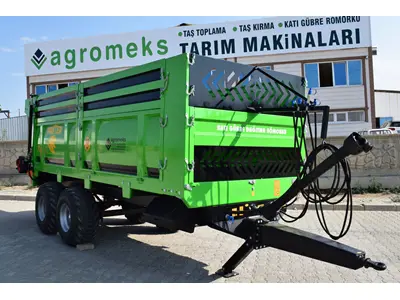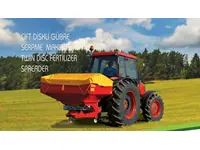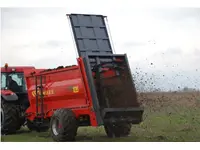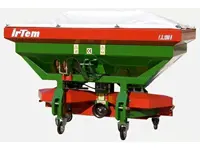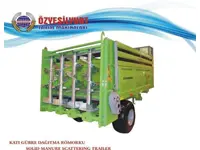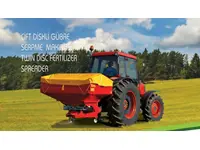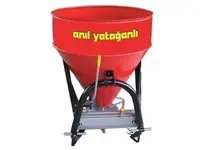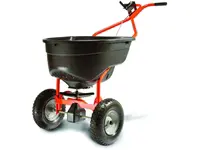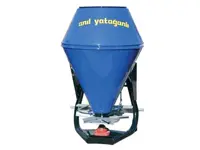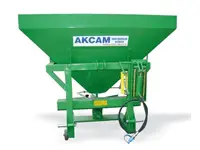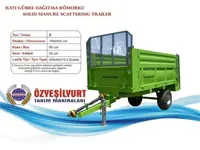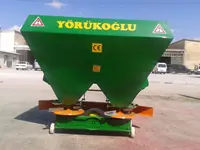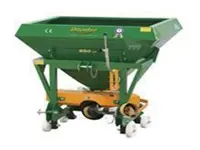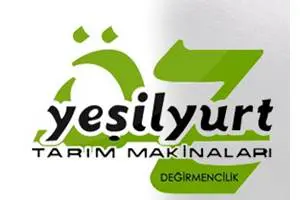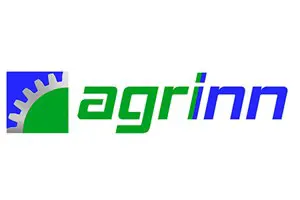Fertilizer Machine Popular Products
Animal Manure Machines
Animal manure machines are used on farms to process and utilize animal waste. These machines help make the waste more useful by turning it into fertilizer that can be used in agricultural fields. Additionally, they assist in managing waste correctly while considering environmental factors. Compost fertilizer, which supports recycling, is also obtained from animal waste. Generally, compost parts can also be found in fertilizer machines.
There are various types of these machines, each serving a specific function. For example, a manure mixer brings different types of animal wastes together to create a homogeneous mixture, which can then be applied to the soil. This way, fertilizers derived from natural animal waste contribute more to the soil, plants, and agriculture. Using natural fertilizers is always more beneficial for plants than artificial fertilizers. Another machine used for the same purpose but supporting recycling is the compost fertilizer machine; it accelerates turning organic waste materials (food scraps, animal feed scraps, bran, molasses, etc.) into compost. Thus, it contributes to recycling. This compost fertilizer produced from waste can be used to improve soil quality.
Another machine used is the manure spreader. These machines automate the process of spreading processed manure on agricultural lands, ensuring an even and efficient distribution of fertilizer. Manure compactors reduce the volume of manure, making storage and transportation easier. Additionally, there are biogas production systems where animal manure is used for biogas production, a type of gas used for energy production.
Another function used in animal manure machines is the manure separator machine. Sometimes, the manure exiting from compost machines or animal manure machines needs to be separated into liquid and solid forms. Therefore, separator machines are used for this purpose. Generally, separators have many benefits for industries. The first one is that the separator enables determining where the manure should be used, ensuring higher efficiency with less waste. Also, this functional machine concentrates liquid manure, providing more yield for plants. Contributing to waste management, the manure separator machine enhances productivity in soil and plants with separated manure, being an eco-friendly machine. Proving to be a multifunctional machine, it boosts agricultural efficiency in livestock farms.
Fertilizer Plant
Fertilizer plants play a crucial role in effectively managing and utilizing organic waste for environmental purposes. These facilities process organic waste into fertilizer, preparing it for usage. For more information on fertilizer plants' productions from various brands visit the makinaturkiye.com website.
Looking at the production process of fertilizer plants, it starts with collection and classification. This initial stage involves collecting organic waste from various sources and classifying them based on their types. Different types of organic materials like agricultural waste, food waste from restaurants, barn waste, etc., are segregated. Then comes the processing and sorting stage. Here, collected organic wastes are processed in special machines to break them down into smaller pieces, facilitating more effective processing. Fragmenting waste eases subsequent sorting and conversion stages. In sorting and conversion, processed wastes undergo transformation via methods like composting or fermentation, promoting transformation with the influence of microorganisms. Through this process, organic materials decompose, producing compost fertilizer. Crumbling waste enhances the nutritional value and quality of the fertilizer. Subsequently, the produced compost undergoes quality control. This step evaluates the fertilizer's nutritional value, moisture content, and quality. Quality control is a critical stage to ensure the fertilizer maximizes yield in agricultural fields. Finally, the produced fertilizer is stored in appropriate conditions for a while and then distributed to farmlands or gardens for use. Fertilizer enhances soil fertility, promoting plant growth and supporting sustainable agricultural practices. The processing flow of fertilizer plants aims to minimize the environmental impacts of organic waste and encourage sustainable production in agricultural lands.
What Is Compost Fertilizer and How Is Compost Fertilizer Made?
Compost fertilizer is a nutritious soil conditioner obtained through the natural decomposition of organic materials. This type of fertilizer is used to enrich garden soil, increase plant nutrients, and enhance soil's water retention capacity. Additionally, it is an eco-friendly option for waste management. So, how is compost fertilizer made? Here are the simple steps to follow when making compost:
- Collect Materials: Among the organic materials you can use for compost fertilizer are vegetable and fruit scraps, coffee grounds, tea leaves, leaves, straw, grass clippings, and wood waste.
- Select an Appropriate Location: Choose a suitable area to make compost fertilizer. Preferably, an area outside your garden that receives sunlight and has good airflow is recommended. Additionally, you can purchase household compost bins for composting.
- Mix Materials: Regularly mix organic materials to ensure air circulation. This speeds up the decomposition process. You can also invest in a manure mixer for ease of use.
- Control Moisture: Keep the compost heap slightly moist. If it's too dry, decomposition slows down; if it's too wet, bad odors and fungi may develop. Many compost facilities have taps to drain excess water.
- Regularly Turn: The compost pile should be turned at least once a week. Using a manure mixer simplifies this task, but manual mixing can be done with mixing paddles or sticks to speed up the decomposition process.
- Wait: The composting process can take several weeks to a few months. Be patient and let the process naturally progress.
- Usage: When the materials have fully decomposed, you can use the compost fertilizer in your garden or on your plants.
Making compost fertilizer is an eco-friendly method that can make your garden soil more productive.
Compost Fertilizer in Sustainable Farming
Compost fertilizer is an effective recycling method in sustainable agriculture. It reduces the carbon footprint and contributes to biobenefits. Regarding sustainable agriculture, compost fertilizer improves soil fertility, promoting healthier plant growth and higher yield. It also decreases the need for chemical fertilizers, reducing the risk of soil and water pollution. Preventing soil erosion helps mitigate soil loss. Looking into how to make compost fertilizer, necessary steps are outlined in the article.
Regarding the carbon footprint, during compost fertilizer production, the carbon dioxide emitted during the breakdown of organic waste surpasses the stored amount during compost production, contributing to the natural carbon cycle. Decreasing synthetic fertilizer use lowers the carbon emissions associated with energy-intensive fertilizer production. In terms of biobenefits, compost fertilizer supports soil microorganism diversity, enhancing soil biology development. This supports soil health and ecosystem balance. It strengthens plant resistance, making them more resilient to diseases and pests, reducing the need for chemical interventions. Ultimately, compost fertilizer benefits the natural environment by reducing the risk of harming natural habitats through organic waste recycling.
When examining each aspect individually, in sustainable agriculture, compost fertilizer improves soil structure, enhancing water retention capacity, encouraging plant growth. By using a compost fertilizer machine, plants receive natural and balanced nutrient sources. This significantly reduces the need for chemical fertilizers while meeting plants' nutritional needs. Using compost fertilizer greatly reduces the reliance on chemical fertilizers, preventing soil and water pollution, even air pollution. Additionally, it promotes organic farming by minimizing the damage caused by chemical fertilizers. In this way, it promotes sustainable agriculture by minimizing the harm to the environment.
As for the carbon footprint, the decomposition of animal waste produces methane gas, a significant greenhouse gas that can intensify the greenhouse effect. Methane is particularly produced in the digestive systems of both large and small livestock and released with their waste. The emission of methane into the atmosphere is more concentrated than other greenhouse gases like carbon dioxide and has a high heat capacity, hence intensifying the carbon footprint and making it almost impossible to prevent. Therefore, turning these wastes into fertilizer contributes to recycling, reducing the impact of greenhouse gases. During compost fertilizer production, carbon dioxide is emitted when organic wastes decompose. However, this emission is lower than the amount of carbon dioxide released during natural waste decomposition. Moreover, increasing soil organic matter content boosts carbon dioxide retention capacity.
Examining bioeffectiveness, compost fertilizer supports soil microorganism diversity, fostering soil biology development. This promotes soil health and ecosystem balance. It also strengthens plant resistance, making plants more resilient to diseases and pests, reducing the need for chemical interventions. Finally, by supporting the natural habitat through organic waste recycling, compost fertilizer decreases the risk of harm to natural habitats.
In conclusion, the impact of compost fertilizer on sustainable agriculture, the carbon footprint, and bioeffectiveness supports eco-friendly agricultural practices, preserves ecosystem health, and contributes to the sustainable use of natural resources.
